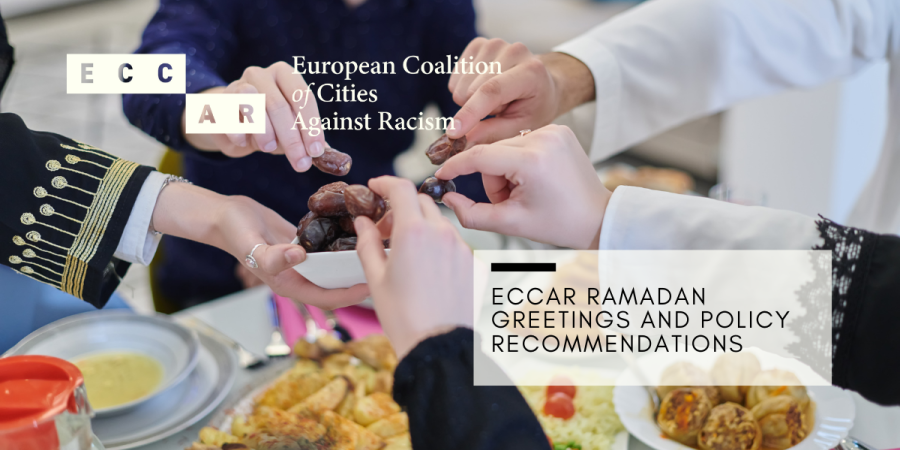
At the beginning of April, many Muslim citizens Europe-wide started their 30-day long fast during the Islamic month of Ramadan. Ramadan and its fast are considered highly important in Islam, as it constitutes one of the five pillars of faith. The rule of thumb is, that a fasting person abstains from any food or drinks from sunrise to sunset. However, the 30-days fasting period is not just spent abstaining from bodily pleasures but it is also an important time of self-reflection and self-improvement, a spiritual disciple. The month culminates in the three-day festivities of Eid-ul-Fitr.
However, there is much lack of knowledge among non-Muslims about Ramadan in general and about how Muslims manage their everyday tasks while fasting. Many Muslims face judgemental comments about their decision to fast, as it is judged too “extreme” to “not drink even water,” or they face micro-aggressions through words such as, “just take a sip, God can’t see you here.” This year again, the citizens' group PEGIDA Netherlands which holds anti-Muslim racism political views has announced to organize provocative “pork roasting” barbeques in front of Dutch mosques during Ramadan. As it usually is with misinformation, unfortunately, it can lead to tensions and, in the worst case, restrictions on religious freedom in the worst-case. For instance, in schools, teachers are worried that Muslim students would not be able to concentrate on their learning duties if they are fasting and resort to prohibiting fasting from their students. The worst is that such rules are made without really listening to those affected by them; every person reacts differently to fasting and takes his/her/their time to adjust to the new rhythm. There is no compulsion in the Islamic faith for a person to fast if it causes health issues. For those who want to exercise their religious freedom by adhering to this spiritual practice, imposed bans can cause more moral harm than managing to “safeguard” their well-being.
It is important to remember, that fasting as a religious practice is not only observed by Muslims. Also, many Christian denominations observe fast in one way or another; for instance, Orthodox Churches observe the 40 days of Great Lent fast abstaining from certain foods. The Jewish religion again sees fasting on Yom Kippur with similar practices to the Islamic fast. Moreover, many people fast by different methods to reap its health benefits, without any religious worldview as their motivation. Hence, since fasting is a practice that connects people from different backgrounds, Ramadan offers an excellent occasion for interfaith exchange, strengthening religious literacy, and building better civic relations.
Cities that, in their roles as employers, contractors, service providers, and creators of democratic urban spaces, are committed to anti-racism and inclusion as pillars of their local government identity can use Ramadan to tackle anti-Muslim racism and enhance social cohesion. Some ECCAR member cities, such as Malmö and Gothenburg, are already implementing good practices in interfaith dialogue and civic education by organizing together with the local Muslim community an annual Eid festival that is open to all people regardless of their background. Kortrijk in Belgium has been organizing an Iftar dinner with the local Muslim community.
While there are many possible ways of action, the anti-Muslim racism working group at ECCAR recommends the following ones that can show the Muslim communities support during this month:
- organizing panel discussions or other civic education programs with religious and non-religious actors of the civil society around the theme of fasting
- organizing a citizens’ Iftar dinner in cooperation with the local Muslim community
- supporting the local Muslim community in organizing the Eid-al-Fitr festivities and contributing to a cultural program during the event
- ensuring that the administration in city institutions possess enough religious literacy to encounter the sensitivities of Muslim colleagues/peers/students observing the Ramadan fast
- publishing official Ramadan greetings by the city mayor and other representatives
- ensuring that the local police authorities are aware of the Ramadan month and are alert to recognize correctly possible hate crimes that target the Muslim community to intimidate them in their religious practice
- communicating with the local mosques on their possible security concerns during Ramadan and if necessary, strengthening the connection between them and the local police
We wish all Muslim citizens of Europe a peaceful Ramadan and hope that this month will be a beneficial occasion for our member cities in their work towards more inclusive and cohesive European communities.
